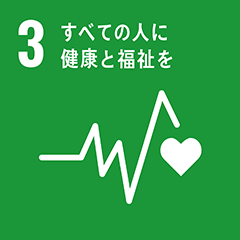Inochi Declaration
Regard dementia as the greatest stage of growth in life, and by focusing on what we can do now and living with gratitude, build a kind and inclusive society where everyone cherishes their bodies and can live with peace of mind.
The Dementia Prevention Activity Consortium (commonly known as “Niyo-katsu”) was established in 2019 by a group of volunteer dementia supporters under the guiding principle: reducing to zero the number of people who give up on life because of dementia. The organization plans and operates social contribution activities addressing both prevention and coexistence with dementia, exploring new possibilities in a super-aged society.
Japan is undergoing rapid population aging and a declining birthrate. While advances in medical technology and the emergence of diverse care services are progressing, they also highlight the urgent issue of increasing medical and caregiving costs. This growing financial burden is a serious challenge for society, especially as the birthrate continues to decline. Dementia is not simply a natural part of aging; it is a medical condition, with an identifiable preclinical phase. While promoting health to avoid risk is essential, Niyo-katsu believes that this alone is not sufficient. True risk avoidance requires a society in which older adults who face higher risks can continue to find meaning in life. What matters most is the ability to feel genuine joy—“This is fun!”—through connections with people and society in one’s own community.
Niyo-katsu recognizes that physical health initiatives must go hand in hand with building systems that foster a sense of purpose in local communities, and they take a multi-faceted approach to their activities.
A flagship initiative is the promotion of Mini-Light Mölkky®︎, a universal sport adapted from Finland’s Mölkky and made one-fifth lighter for accessibility. Niyo-katsu regularly hosts large-scale events such as the “Orangelympic,” which welcomes participants from toddlers as young as two to elderly individuals in their 90s. The event brings together people of all ages and abilities, including people with disabilities, those in need of caregiving, and people with dementia, encouraging natural, multigenerational interaction. To further deepen such community connections, Niyo-katsu launched the “MölPa” (Mölkky Party) project, a community gathering initiative. In addition to Mini-Light Mölkky instruction, MölPa includes training on how to interact with and be considerate toward individuals with dementia. This effort contributes to nurturing local leaders who can sustain such community-based activities independently.
Niyo-katsu’s work goes beyond sports. Recognizing the decline in the sense of smell as an early symptom of Alzheimer’s disease, they collaborate with aromatherapists in prevention efforts. Through symposiums and workshops, they also continue to disseminate the latest knowledge on prevention and coexistence with dementia, contributing to greater public awareness.


Orangelympic scenes
True happiness is only found through connections with others. Based on this belief, Niyo-katsu will continue expanding spaces where people can enjoy sports together. They aim to promote universal sports across generations—from kindergartens and elementary schools to elderly care facilities and hospitals. Their initiatives seek to foster multigenerational gatherings centered on dementia awareness through sports events and community spaces. To support this vision, they are committed to nurturing human resources and developing sustainable systems that enable autonomous regional development. Within these systems, they will promote regional societies where people can connect naturally and comfortably, in line with the realities of today’s world.
Humans derive a sense of purpose by contributing to others. Inochi Forum values systems that allow this fundamental human motivation to thrive, even in small-scale, volunteer-like formats. It will continue promoting activities through collaboration across government, academia, industry, and civil society. In particular, in partnership with organizations like Niyo-katsu, it will provide opportunities and frameworks for people to realize their inner desires to “be of help” and “continue learning.” Toward 2050, we will continue striving to create a gentle and joyful universal society— one that only a super-aged society can make possible.
[References]
・Niyo-katsu
・Orangelympic
https://www.niyokatsufes.com/orangelympic
[Action Platform]
Diversity & Inclusion
[SDGs]




